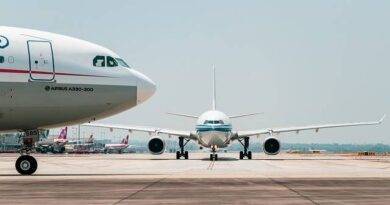Aviation in Burundi: The Impact of Financial Impossibilities on Development
Aviation plays a crucial role in facilitating economic growth, tourism, and global connectivity. However, in a country like Burundi, financial constraints have severely impacted the aviation sector, hindering its progress and potential. This article explores the challenges faced by the aviation industry in Burundi due to financial impossibilities and highlights the consequences of these limitations on the country’s development.
Burundi’s Aviation Infrastructure:
Burundi, a landlocked country in East Africa, heavily relies on aviation to connect with the rest of the world. The country’s main international gateway is Bujumbura International Airport, which serves as a vital link for both passengers and cargo. However, inadequate infrastructure and outdated facilities have hindered the airport’s efficiency and capacity for growth.
Financial Constraints:
The aviation sector in Burundi faces significant financial obstacles that impede its development. Limited financial resources allocated to aviation infrastructure, maintenance, and safety measures have created challenges for the industry. Insufficient funding has resulted in outdated equipment, inadequate training facilities, and a lack of modern technologies, restricting the sector’s ability to meet international standards.

Impact on Air Safety:
Financial impossibilities have a direct impact on air safety standards in Burundi. Due to budgetary limitations, the country struggles to invest in regular maintenance, training programs, and aviation safety audits. This situation poses a risk to passengers, discourages foreign airlines from operating in Burundi, and adversely affects tourism and trade prospects.
Stifling Economic Growth:
The aviation industry is a catalyst for economic growth, fostering tourism, trade, and investment. However, financial constraints have stifled Burundi’s aviation potential, limiting opportunities for economic expansion. Insufficient resources hamper the growth of domestic airlines, limit international connectivity, and restrict the movement of goods and services. This lack of connectivity hampers the country’s ability to attract foreign investments and tap into global markets.
Tourism and Trade Implications:
Burundi, known for its stunning landscapes and cultural heritage, heavily relies on tourism for economic development. However, financial impossibilities within the aviation sector have made it challenging to promote the country as a tourist destination. Restricted air connectivity, high airfares, and safety concerns deter potential visitors, hampering the growth of the tourism industry. Similarly, limited cargo capacity and connectivity affect trade prospects, hindering the import and export of goods.
Potential Solutions and the Way Forward:
To overcome the financial challenges facing the aviation industry in Burundi, a multi-faceted approach is necessary. The government should prioritize allocating sufficient funds to modernize infrastructure, improve safety measures, and invest in training programs. Encouraging public-private partnerships can also attract foreign investments and expertise to revitalize the sector. Strengthening regional collaborations with neighboring countries and promoting tourism campaigns can enhance air connectivity and increase passenger traffic.
Conclusion:
The financial impossibilities faced by Burundi’s aviation sector have had a profound impact on the country’s development. Inadequate funding, outdated infrastructure, and limited safety measures have hindered growth, economic potential, and international connectivity. By addressing these challenges through targeted investments, public-private collaborations, and regional partnerships, Burundi can unlock the transformative power of aviation, boosting its economic growth, tourism industry, and global standing.
References:
- International Civil Aviation Organization (ICAO) – The official website of ICAO provides global aviation data, reports, and statistics, including information on infrastructure, safety standards, and financial aspects.
- Burundi Civil Aviation Authority (AACB) – The official website of the AACB might offer insights into the specific challenges and initiatives related to aviation in Burundi.
- World Bank – The World Bank’s website may provide reports and studies on the economic challenges and development prospects of Burundi, including the impact of financial constraints on various sectors, including aviation.
- African Airlines Association (AFRAA) – AFRAA represents the interests of African airlines and might offer publications and reports that touch on the aviation industry in Burundi and the broader region.
- United Nations World Tourism Organization (UNWTO) – The UNWTO’s website contains valuable data and reports on tourism trends, impacts, and potential in different countries, including Burundi.



